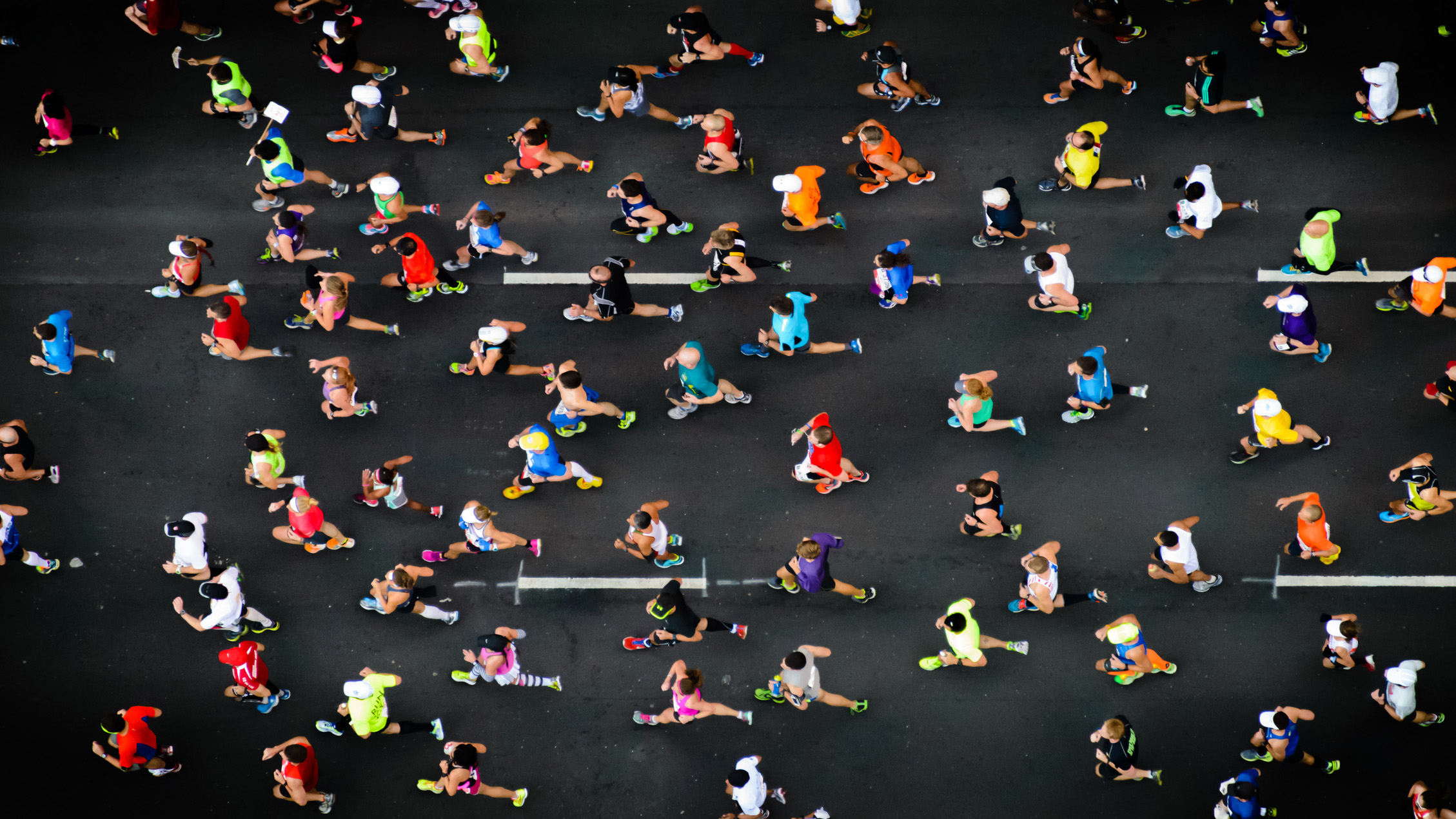


While completing a marathon is on many of our bucket lists, running such a long distance in one go requires skill, training and dedication. Successful marathon training can take at least four months; you need time to fully build up the physical and mental endurance needed to successfully complete the full 26 miles. The below tips can help you get ready better for your first full marathon.
The team of sports specialists at Sweatband.com, have pulled together 10 top tips to help you become your best fitness self, ready to breeze through your first marathon. While most of the tips are marathon running-related, some of them can even get you to get fit for 2022, too.
If you are hell-bent on running a marathon this year, you'll need some gear; most notably, a pair of running shoes. Browse the best running shoes, best women's running shoes and best Nike running shoes on T3!
As well as those, you might need a running watch or a multisport watch to track your progress.
Without further ado, let's hear those tips!
Don’t overdo it
First-time marathon runners tend to do the most exercise and training in the last three weeks leading up to the big day. This can cause your body to burn out, leaving you with little energy when you need it most.
Ensure that you taper your training runs leading up to the race, doing 75% of your normal mileage, then 50% and then 25% in the last week. Thisa way Thisyour body will be fully recovered when the time comes, and you can give it everything you’ve got.
Sign up to the T3 newsletter for smarter living straight to your inbox
Get all the latest news, reviews, deals and buying guides on gorgeous tech, home and active products from the T3 experts
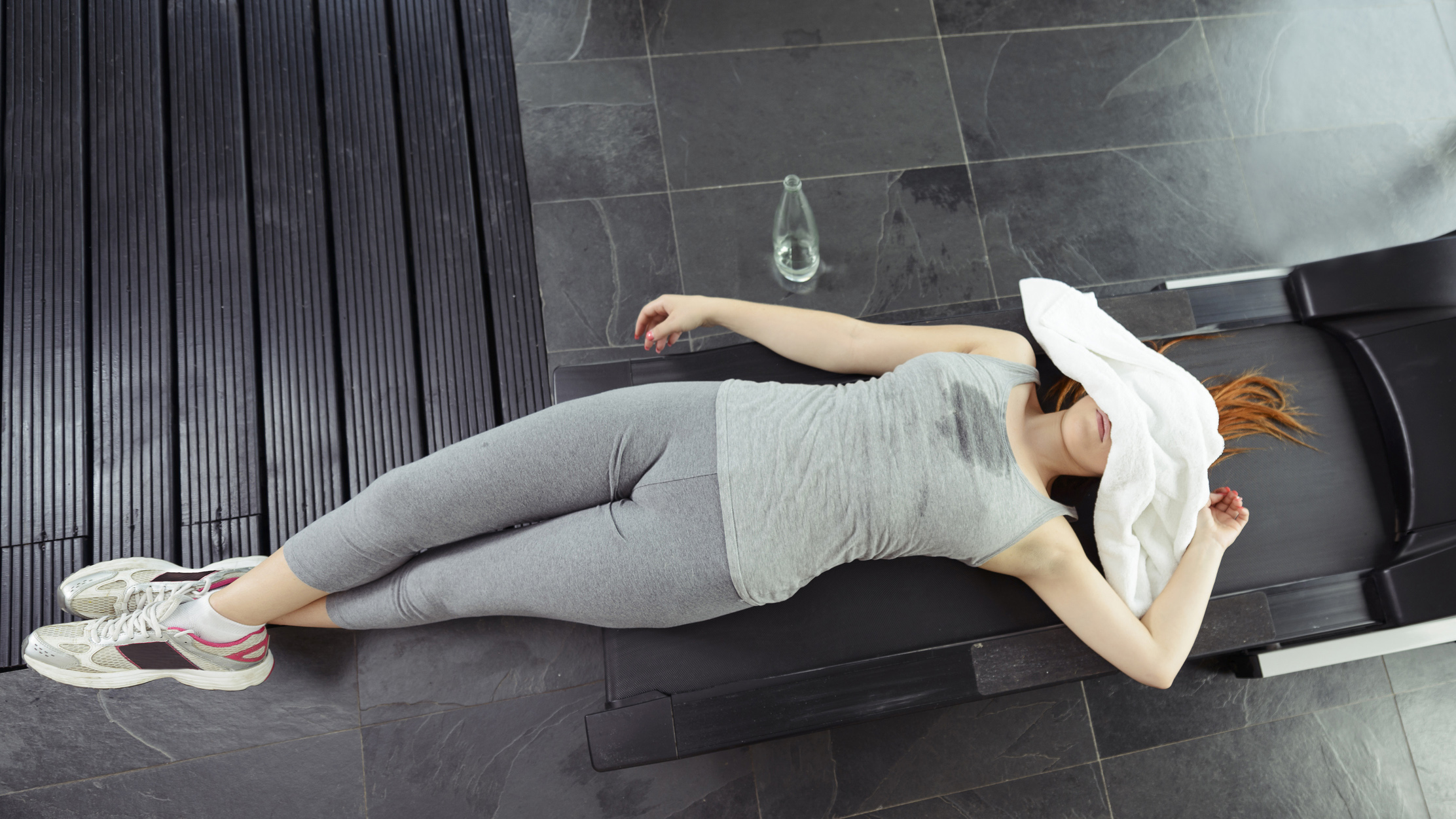
Rest is important
Don’t wear yourself out the day before the marathon. Try to do all of your preparation the weekend before, ensure you have all of the correct kit, pick up your number and buy any energy drinks you need. Go for a light 20-minute jog, eat a good meal and keep your feet up for the day.
Don’t beat yourself up
If you have one day where your body is telling you 15 miles is too much, that’s okay, you can always train again tomorrow. Having a “bad run” is very common in the month or two before the marathon so try not to let that knock your confidence. All runners struggle and 26 miles is no small feat, so one run will not define your success.
It's worth keeping track of the workout strain your body is experiencing at any given point. The Whoop 4.0 measures strain and so do other wearables such as the Fitbit Charge 5 (Daily Readiness Score) and most Garmin watches through the Workout Load feature.

Stay Hydrated
The days leading up to a marathon are just as important as the day of the event but drinking litres of water on the day will not help your body to perform. It will just leave you feeling bloated. Instead, increase your daily intake of water by a litre and you will notice a significant difference when you set off from the start line!
Know the course
A marathon is both a mental and physical challenge. If you don’t know where you’re headed or how far you’ve been it can be easy to get discouraged and lose momentum. By learning the route, you will have the upper hand on your own mental battle and know exactly how to pace yourself, based on how far you’ve been.
Marathon legends such as Haile Gebrselassie were famous for memorising their splits before big races to make sure they always keep the right pace throughout the course. And while you aren't likely to run a 2:04 marathon anytime soon, as long as you know your own pace and timings, it can give you the competitive edge during your first marathon.
Prepare your mind and your body
A positive mindset can really make a difference when completing your first marathon. You physically run with your body, but your mind will be the thing that keeps you going on those final few miles.
The voice you have in your head can either motivate and push harder or tell you can’t do it. It is important to encourage the first in your training. Meditation and mental visualisation will put you in good stead to give those 26 miles everything you’ve got!

Get plenty of sleep
Sleep is vital to your body’s recovery, especially during marathon training. Your body’s immunity levels will be lower than normal when you’re going through such vigorous training, so getting the proper amount of sleep is crucial for protecting yourself. It is likely you will not get much sleep the night before but having the appropriate amount of sleep the few nights before will make all the difference.
Elite long-distance runners such as the amazing Sir Mo Farah used to sleep 10-11 hours a day during his training. According to Men's Heath, Sir Mo "tends to go to bed around 10 pm at the latest and wakes up at 7 am. He also schedules in a nap for a couple of hours in the afternoon. But when at training camp, Farah gets to bed at 9 pm and is up at 8 am, noting that the more sleep he gets serves him extremely well."
Some athletes chose to 'prehab' before runs. Prehab can prevent injuries more efficiently than overstretching your muscles after a strenuous running session. For example, you can use a massage gun to warm up the muscles before your runs and a foam roller after to roll away lactic acid build-up.
Don’t underestimate the amount of fuel you’ll need
Although breakfast is the most important meal of the day, it alone won’t be enough to sustain you for the countless hours of running you’ll be undertaking. Energy gels and isotonic sports drinks will help to restore the carbohydrates that your muscles use up during the duration of the marathon, ensuring you can maintain a consistent pace and work rate.
Many runners also have a protein shake after their runs to aid recovery. You can use either whey or plant-based protein powder and mix it with water; a convenient enough combination. Protein bars are even more convenient to have on you in your gym bag.
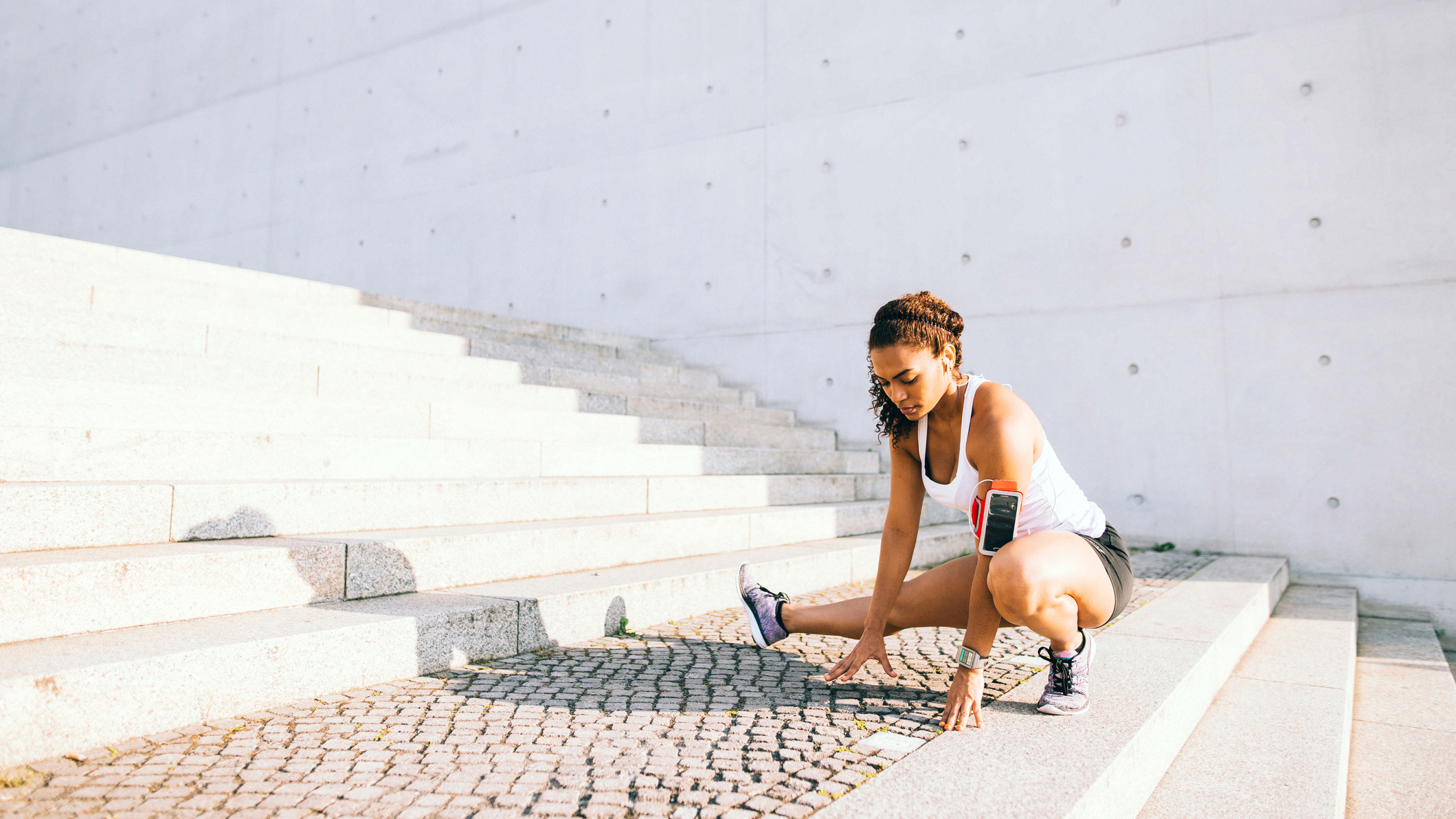
Stick to what you know
When the day comes it’s easy to panic and change your normal routine, eat a different breakfast or get up earlier than you normally would. This could be your undoing and prove to be more detrimental than beneficial. Stick to your regular routine to keep your mind and body balanced and prepared. Stick to what you know and keep your cool.
Be prepared
Get everything you need in the morning out ready the night before, have your kit all laid out and your number too. This will ensure you avoid feeling rushed or encountering a problem on the day of the big race. Make sure you look up where you need to be ahead of time and potentially even drive to the location. If you do this, you will be familiar with your surroundings when you arrive and won’t get lost or risk being late.
This feature is part of T3's Get Fit 2022 campaign. We’ll be bringing you a wealth of guides, features, deals and news to help you get healthy, fit and ready for anything the new year can throw at you. Whether you’re a newcomer to fitness or someone with a passion for it, we’ll bring you all the best workouts, diet advice and gear to set you on the right track.

Matt Kollat is a journalist and content creator who works for T3.com and its magazine counterpart as an Active Editor. His areas of expertise include wearables, drones, fitness equipment, nutrition and outdoor gear. He joined T3 in 2019. His byline appears in several publications, including Techradar and Fit&Well, and more. Matt also collaborated with other content creators (e.g. Garage Gym Reviews) and judged many awards, such as the European Specialist Sports Nutrition Alliance's ESSNawards. When he isn't working out, running or cycling, you'll find him roaming the countryside and trying out new podcasting and content creation equipment.
-
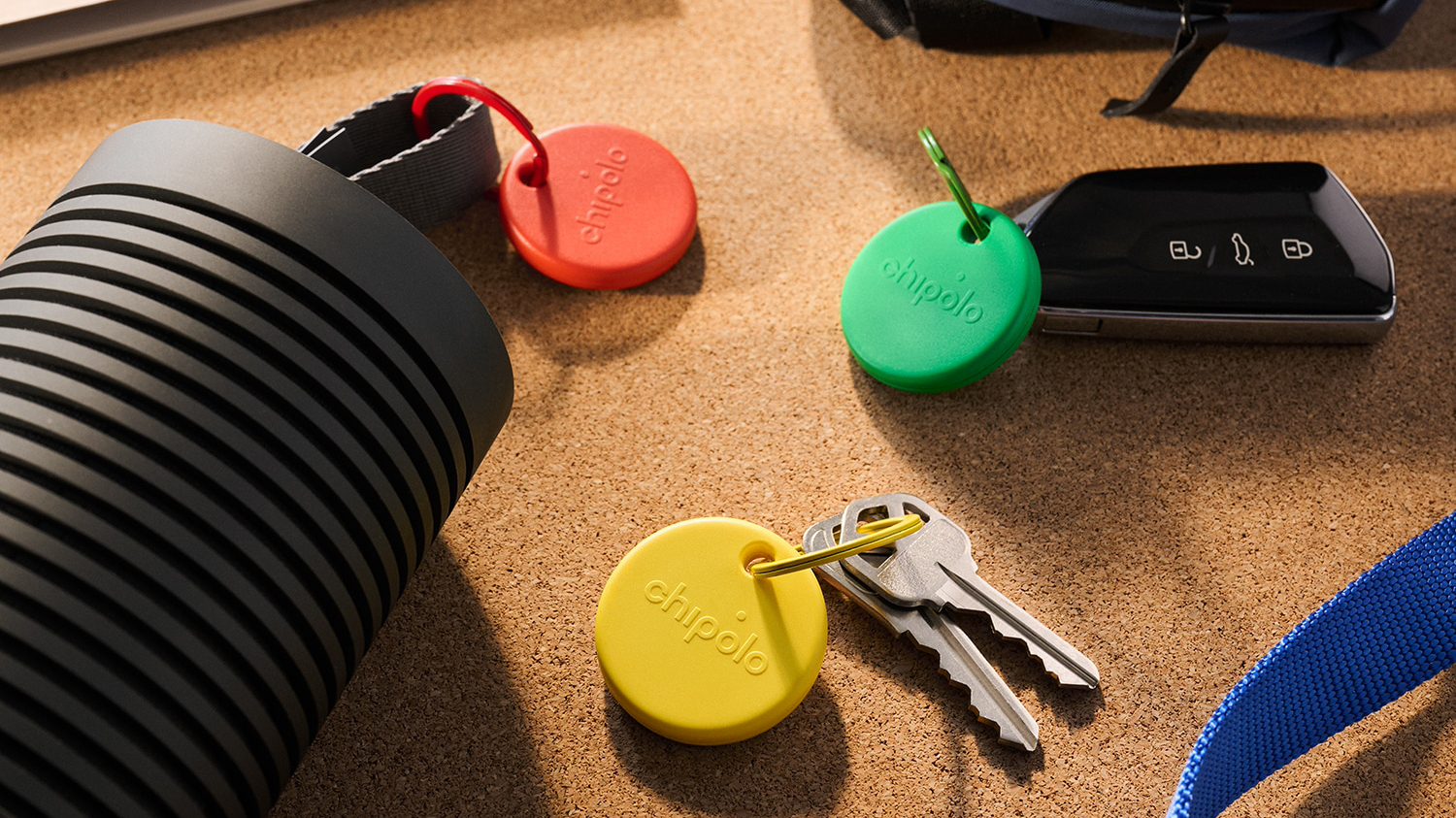 Forget AirTag, Chipolo's new Bluetooth tracker adds a dash of colour
Forget AirTag, Chipolo's new Bluetooth tracker adds a dash of colourChipolo's Pop tracker works with both Apple's Find My and Google's Find My Device – so you can track whichever platform you're using
By Mike Lowe
-
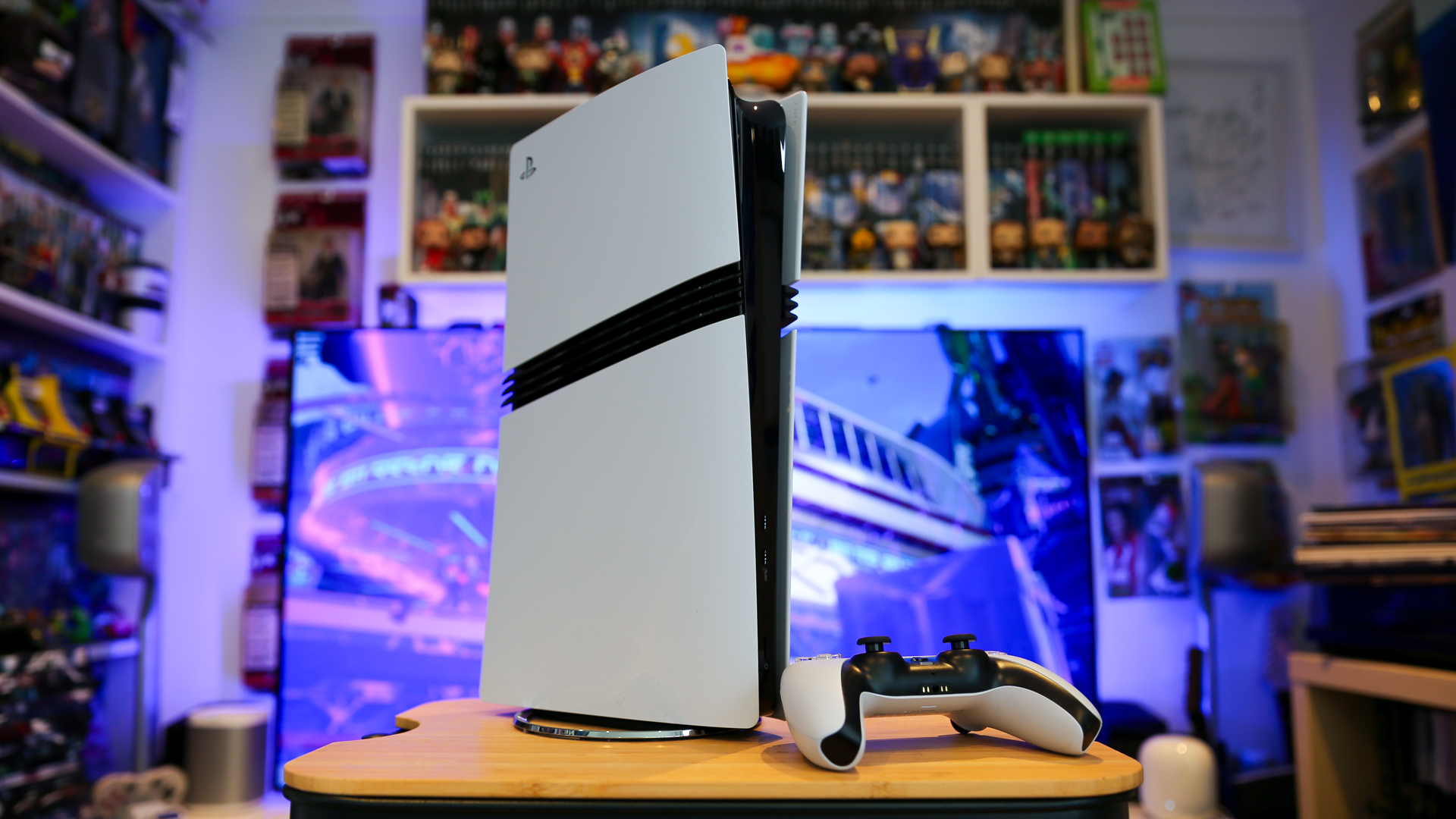 The 5 luxury PS5 Pro accessories I can't live without – How to upgrade your PlayStation in style
The 5 luxury PS5 Pro accessories I can't live without – How to upgrade your PlayStation in styleIf you want a better experience for your PS5 Pro, you need these luxury upgrades
By Max Freeman-Mills
-
 20-minute full-body HIIT workout to burn fat and boost your metabolism
20-minute full-body HIIT workout to burn fat and boost your metabolismYou won't need any equipment for this T3-exclusive “Box ‘n Burn” shadowboxing follow-along workout
By Matt Kollat
-

 Reduce stress, get strong and burn fat with this 20-minute punch bag workout
Reduce stress, get strong and burn fat with this 20-minute punch bag workoutRelieve stress and get fit in the process with this follow-along workout from a top boxing coach
By Matt Kollat
-
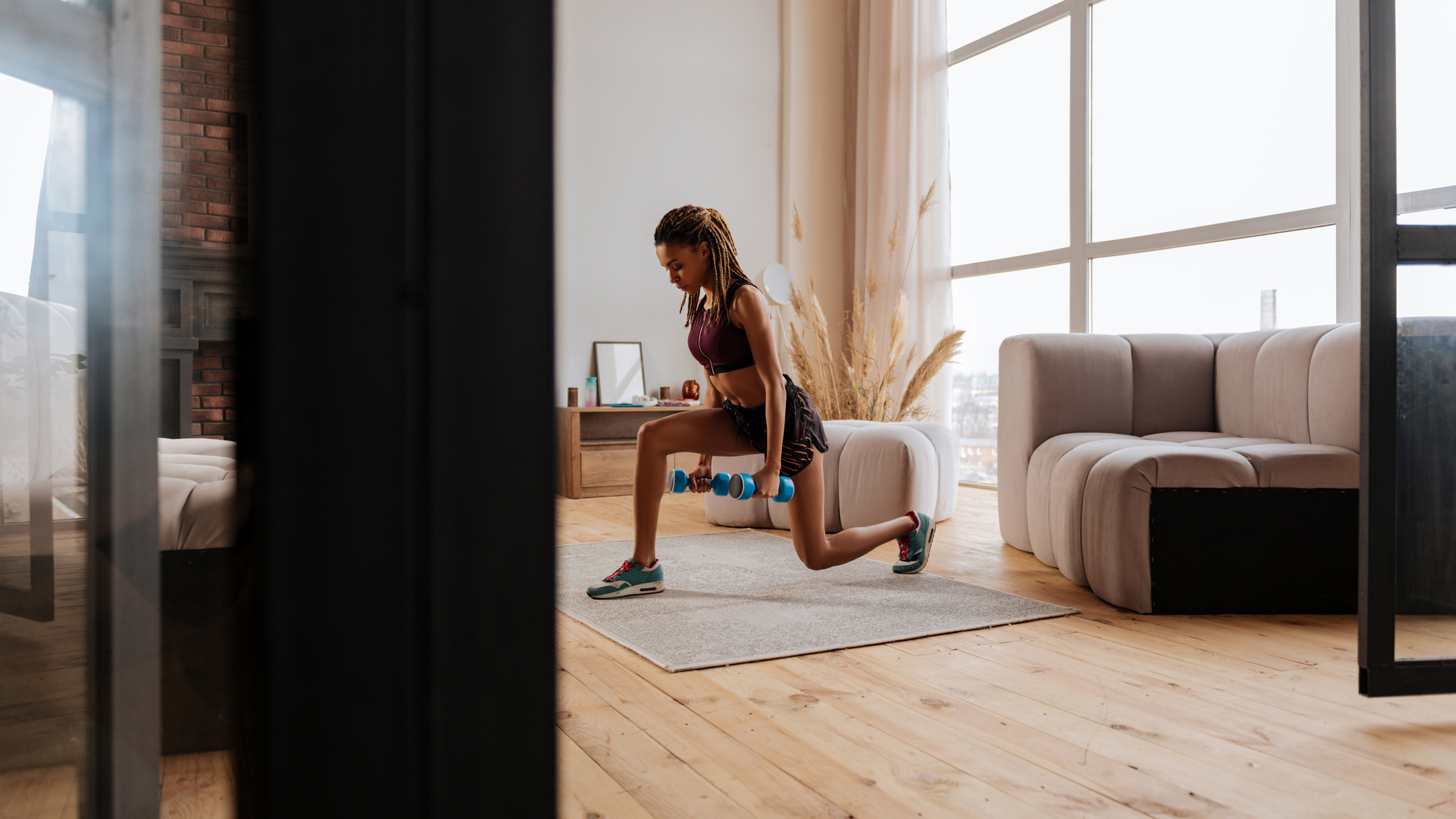
 This home workout combines HIIT and strength training – burn fat and build muscle in 20 minutes
This home workout combines HIIT and strength training – burn fat and build muscle in 20 minutesSlim down at home with this fast-paced dumbbell HIIT workout
By Matt Kollat
-

 Try this 2-minute six-pack workout and train the most neglected part of your abs
Try this 2-minute six-pack workout and train the most neglected part of your absFast, efficient and fun; this ab workout has it all!
By Matt Kollat
-
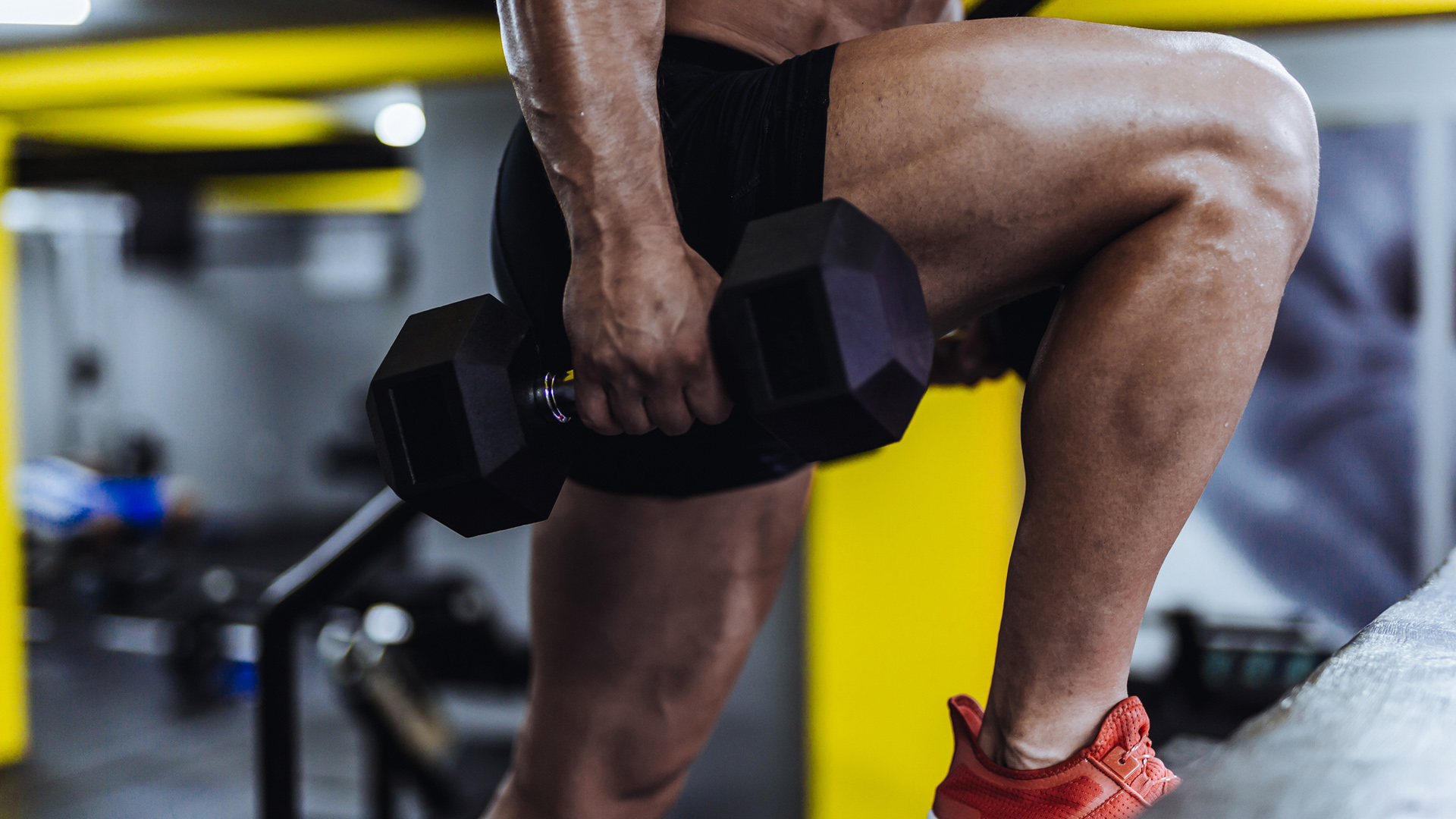
 Work the glutes, quads and calves with this 5-move leg day workout – you'll only need 2 dumbbell
Work the glutes, quads and calves with this 5-move leg day workout – you'll only need 2 dumbbellWork your whole lower body, from glutes to calves, with the smallest home weight
By Matt Kollat
-
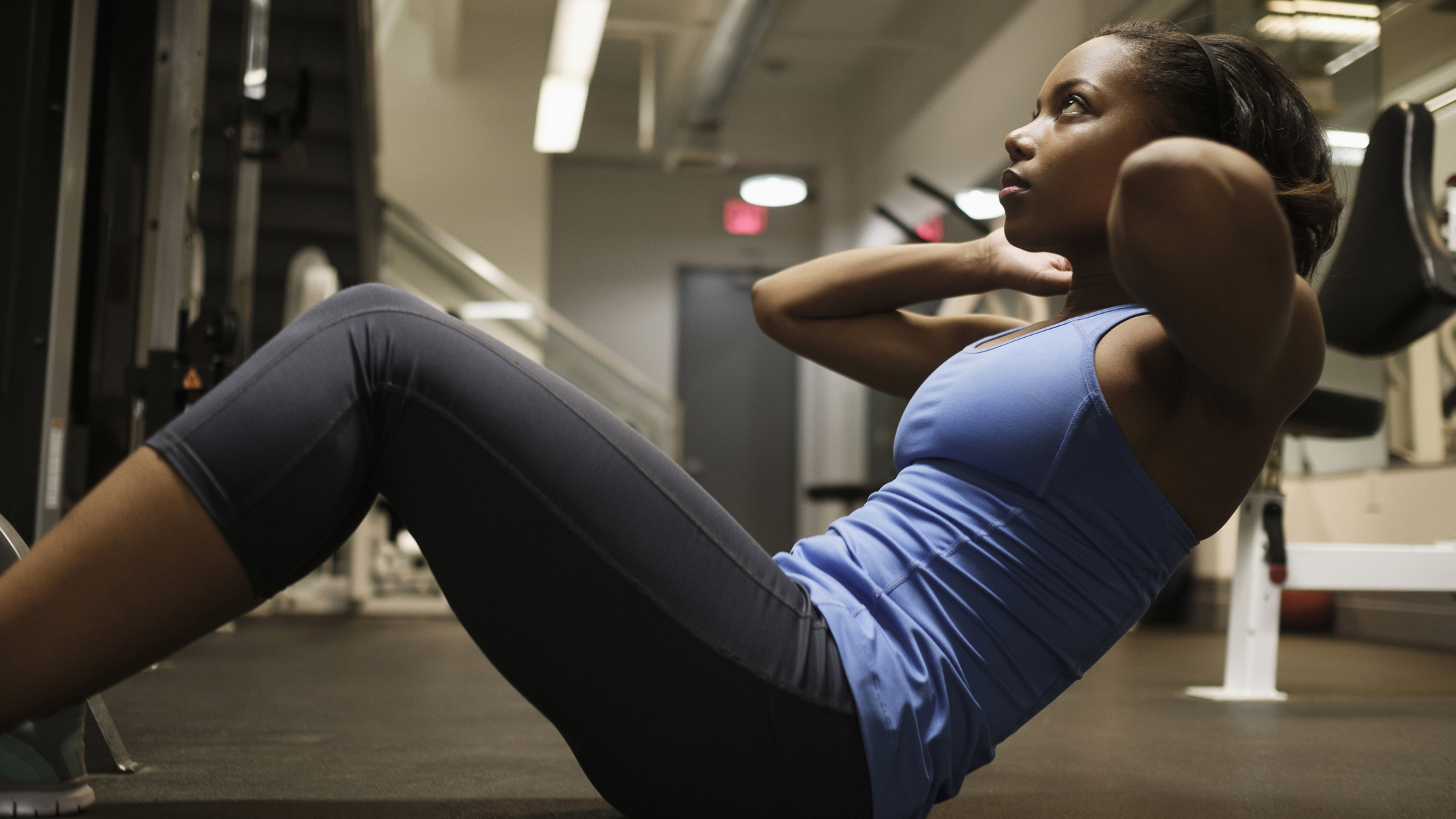
 15-minute low-impact full-body workout to burn fat and improve metabolism
15-minute low-impact full-body workout to burn fat and improve metabolismYour body (and two chairs) is the only equipment you'll need for this workout
By Matt Kollat
-

 Sculpt six-pack abs with this quick 4-move core workout – no equipment required
Sculpt six-pack abs with this quick 4-move core workout – no equipment requiredGet your abs ready for this fast and furious core workout – no equipment required!
By Matt Kollat
-

 Build big arms and back muscles with this 5-minute pull up workout for beginners
Build big arms and back muscles with this 5-minute pull up workout for beginnersStruggling to get started with pull-ups? This fast workout will help you build strength (and arm/back size)
By Matt Kollat